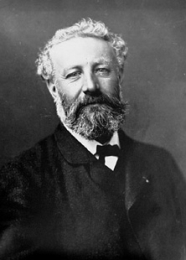Dick Sand is a fifteen-year-old boy serving on the schooner Pilgrim as a sailor. The crew are whale hunters that voyage every year down to New Zealand. After an unsuccessful season of hunting an entomologist ask for a return passage to San Francisco. Several days into the journey they save five shipwrecked passengers from another ship and a dog who was with them at the time.
Dieser Download kann aus rechtlichen Gründen nur mit Rechnungsadresse in A, B, BG, CY, CZ, D, DK, EW, E, FIN, F, GR, HR, H, IRL, I, LT, L, LR, M, NL, PL, P, R, S, SLO, SK ausgeliefert werden.










